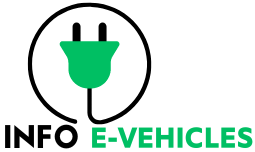In a significant move towards sustainable transportation, Volkswagen is set to bid farewell to conventional gas-powered cars in Norway by the end of this year. This decision was announced by the renowned Norwegian import company, Møller Mobility Group.


The Transition to Electric Vehicles
From 2024 onwards, Volkswagen will exclusively offer electric vehicles (EVs) in Norway, aligning with the country’s ambitious EV adoption goals and emphasizing the automaker’s dedication to sustainable transportation.
A Milestone Anniversary
This strategic shift coincides with Volkswagen’s 75th anniversary in Norway, commemorating its establishment on October 21. Since its inception, Volkswagn has witnessed the sale of over a million vehicles in the country.
Key Figures and Recommendations:
- Møller Mobility Group has imported a staggering 1.1 million Volkswagen vehicles into Norway.
- Approximately 102,000 of these are EVs, signifying a growing trend towards sustainable mobility.
- Encouragingly, customers are urged to explore Volkswagen’s innovative ID lineup, with the much-anticipated ID.7 slated to offer an electric alternative to the Passat.
Norway’s Leadership in EV Adoption
Norway leads the world in overall EV adoption, with over 80 percent of new car sales being electric vehicles. The nation is also on track to implement an ambitious ban on the sale of new gas cars from 2025, setting a global standard for EV adoption.
Top Electric Vehicle Models in Norway
While Tesla maintains a steadfast grip on the Norwegian EV market, the sales tracker ElbilStastikk.no reports that Tesla’s Model Y remains the best-selling EV, with an impressive 20,109 units sold in the third quarter. Volkswagn’s ID.4 closely follows as the second-best seller, boasting 5,823 units sold during the same period. The ID.3 secures the sixth position with 2,778 units.
Conclusion
Volkswagn’s transition to an all-electric lineup in Norway signifies a significant step towards a greener automotive future. This move not only aligns with Norway’s ambitious EV adoption goals but also serves as a beacon for global automakers to reevaluate their environmental impact.
ALSO READ :-
Tesla Surpasses 2,000 Supercharger Stations in the U.S.
Tesla Reveals Revolutionary V4 Superchargers: Transforming EV Charging Landscape
SOURCE : TESLARATI
FAQs
When will Volkswagen cease the sale of gas-powered cars in Norway?
Volkswagen is set to conclude the sale of its last gas-powered car in Norway by the end of this year.
What is the significance of this transition for Volkswagen in Norway?
This transition marks a monumental shift in Volkswagen’s approach, aligning with Norway’s pioneering efforts in EV adoption and underscoring the automaker’s commitment to sustainable transportation.
What is Norway’s standing in global EV adoption?
Norway leads the world in overall EV adoption, with over 80 percent of new car sales being electric vehicles.
What are the best-selling electric vehicles in Norway?
According to sales tracker ElbilStastikk.no, Tesla’s Model Y leads the pack, followed closely by Volkswagen’s ID.4.
How does Volkswagen’s transition to exclusively electric vehicles in Norway align with the country’s goals for sustainable transportation?
Volkswagen’s decision to shift to electric vehicles in Norway from 2024 onwards is in harmony with Norway’s ambitious targets for EV adoption. This move not only supports the nation’s goal of reducing carbon emissions but also contributes to a greener and more sustainable future for transportation.
What impact will Volkswagen’s transition have on the automotive market in Norway and the global push towards electric mobility?
Volkswagen’s transition signifies a pivotal moment in the automotive industry, particularly in Norway, a global leader in EV adoption. This move sets a significant precedent for other automakers, encouraging them to accelerate their own shifts towards electric mobility. It also reinforces the urgency and importance of sustainable transportation solutions on a global scale.
